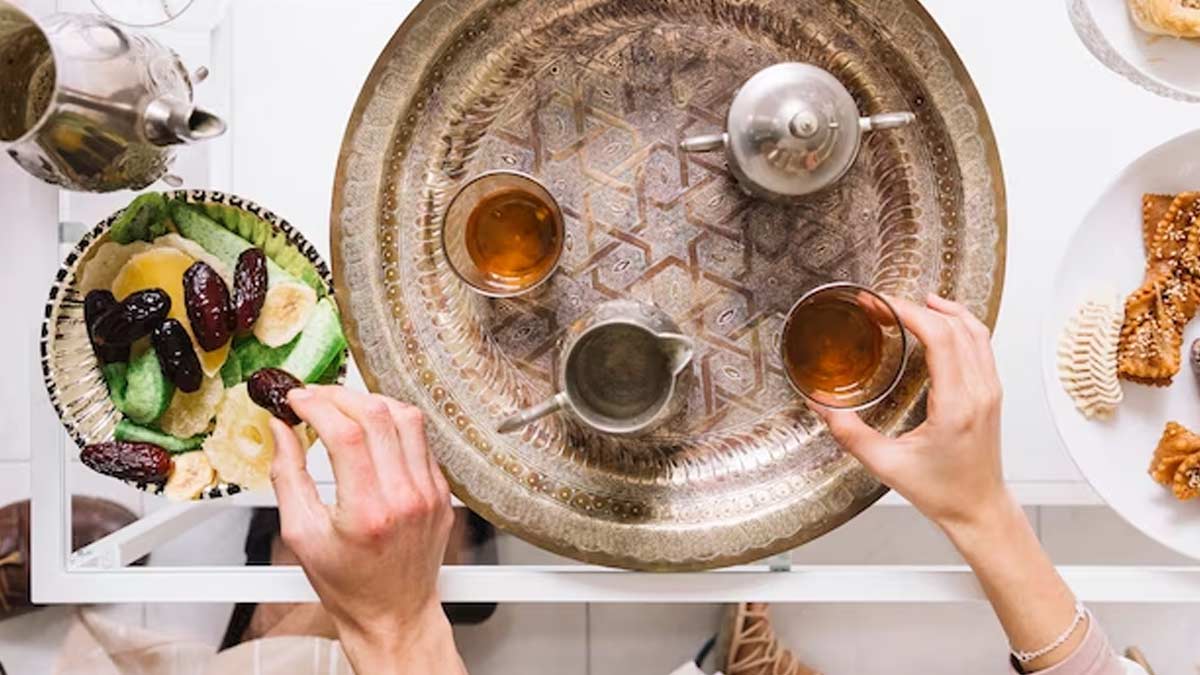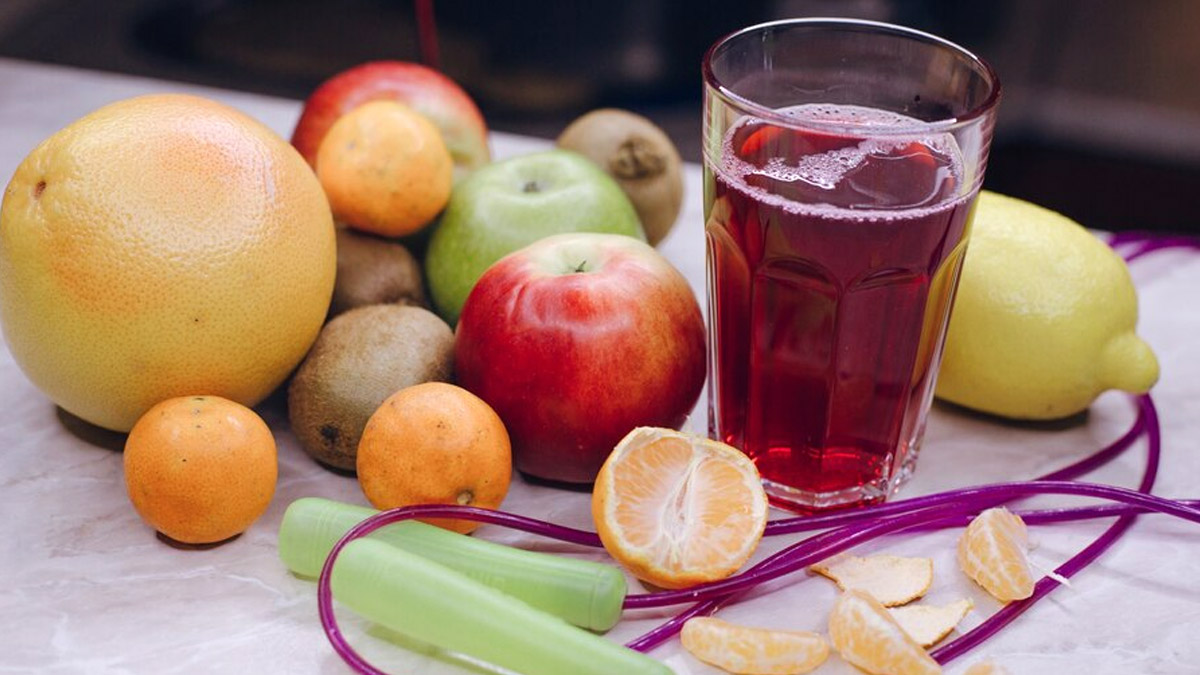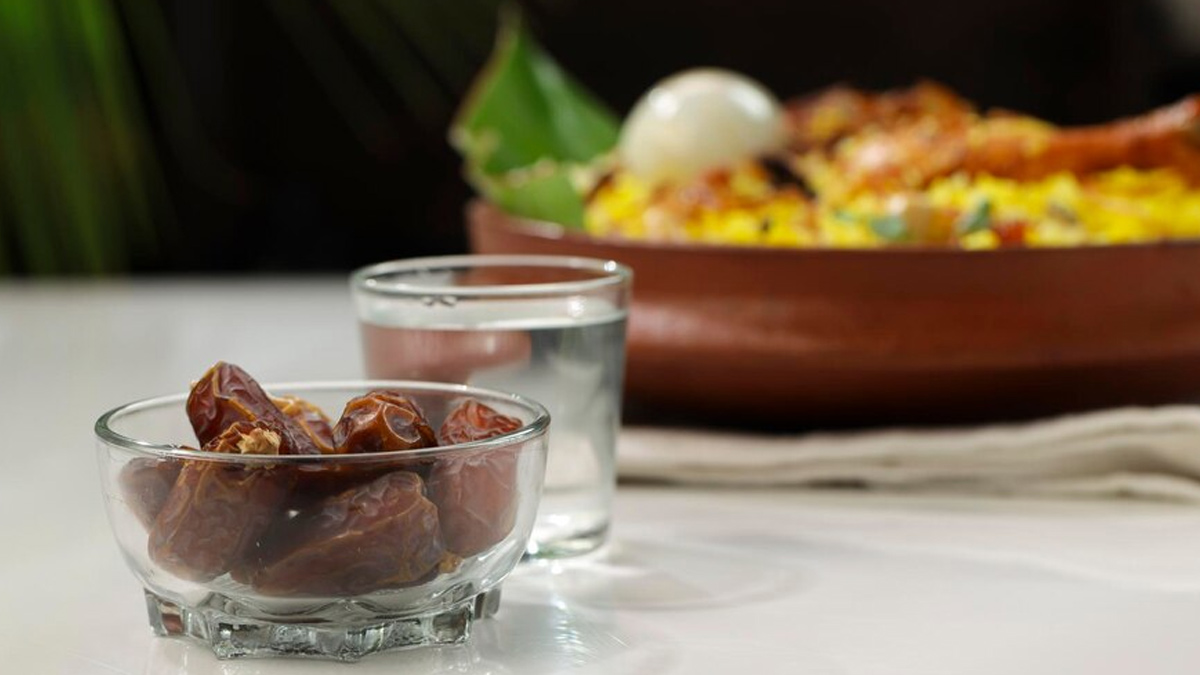
As Muslims observe the holy month of Ramadan, abstaining from food and drink from dawn till dusk, it becomes crucial to utilise non-fasting hours wisely to maintain hydration and nourishment throughout the day. In OnlyMyHealth’s exclusive series #RamadanMubarak, we spoke to Dr Ekta Singhwal MSc Dietician Ujala Cygnus Group of Hospitals, who listed tips that you should follow during non-fasting hours to keep you hydrated throughout the day.
Table of Content:-
Tips To Stay Hydrated During Non-Fasting Hours In Ramadan

Suhoor: The Pre-Dawn Meal
Suhoor, the pre-dawn meal, is essential for providing sustained energy and hydration throughout the fasting day. “Therefore, start your suhoor with hydrating foods, such as water-rich fruits like watermelon, strawberries, oranges, and grapes. These fruits not only hydrate the body but also provide essential vitamins and minerals to kickstart your day, said Dr Singhwal.
As per the US Department of Agriculture, watermelon and strawberries contain 91% water, providing hydration and essential nutrients to your body.
You should also include complex carbohydrates, such as whole grain bread, oats, or barley into your suhoor meal. These slow-releasing carbohydrates provide lasting energy and help prevent thirst and fatigue during fasting hours.
Also Read: Supporting Employees Observing Ramadan Fasting: Experts List Tips for Organisations
Hydration-Promoting Beverages
During non-fasting hours, it is essential to prioritise hydrating beverages to replenish fluid levels. Hence, opt for water, herbal teas, and homemade fruit-infused water to quench thirst and maintain hydration. Make sure that you avoid sugary and caffeinated drinks, as they can lead to dehydration and energy crashes later in the day.
Dr Singhwal added, "Coconut water is an excellent natural electrolyte-rich beverage that can help replenish lost minerals and prevent dehydration. You can add it to your suhoor or iftar (the meal to break the fast) to boost hydration levels."

Balanced Iftar Meals
Breaking the fast with a balanced and hydrating iftar meal is essential for replenishing nutrients and fluids after a day of fasting. “Start with dates and water to rehydrate and provide quick energy to the body. Dates are rich in natural sugars and minerals, making them an ideal choice for breaking the fast”, said Dr Singwal.
Follow the dates with a light soup or salad to hydrate and prepare the digestive system for the main meal. Opt for clear soups or salads with water-based vegetables like cucumber, lettuce, and tomatoes to boost hydration and provide essential nutrients.
Also Read: How To Prioritise Your Mental Health In The Workplace During Ramadan Fasting

Hydrating Snack Options
Between iftar and suhoor, include hydrating snacks to keep energy levels stable and prevent dehydration. Fresh fruits like melons, berries, and citrus fruits are excellent choices for hydrating snacks. You can pair them with a small handful of nuts or seeds for added protein and healthy fats to keep you satisfied until the next meal.
Greek yoghurt topped with honey and nuts is another hydrating snack option that provides a balance of protein, carbohydrates, and fats. Yoghurt is also rich in probiotics, which support gut health and digestion during Ramadan.
Mindful Eating Practices
Dr Singhwal highlighted, “Practise mindful eating during non-fasting hours to promote hydration and prevent overeating. Try eating slowly and pay attention to your body's hunger and fullness cues. Also, refrain from consuming heavy and spicy foods that can increase thirst and discomfort during fasting hours.”
Choose foods with high water content and avoid excessive salt, as it can contribute to dehydration. Incorporate hydrating foods like cucumbers, lettuce, and watermelon into your meals and snacks to stay hydrated throughout the day.
Bottomline
Dr Singhwal concluded, “Maintaining hydration during Ramadan is essential for sustaining energy levels and supporting overall health and well-being. By consuming hydrating foods, prioritising water and electrolyte-rich beverages, and practising mindful eating, you can ensure that your non-fasting meals keep you adequately hydrated throughout the holy month. May this Ramadan be a time of spiritual reflection, gratitude, and nourishment for all.”
[Disclaimer: This article contains information provided by an expert and is for informational purposes only. Hence, we advise you to consult your expert before making any dietary changes, especially if you are dealing with any health issues.]
Also watch this video
How we keep this article up to date:
We work with experts and keep a close eye on the latest in health and wellness. Whenever there is a new research or helpful information, we update our articles with accurate and useful advice.
Current Version